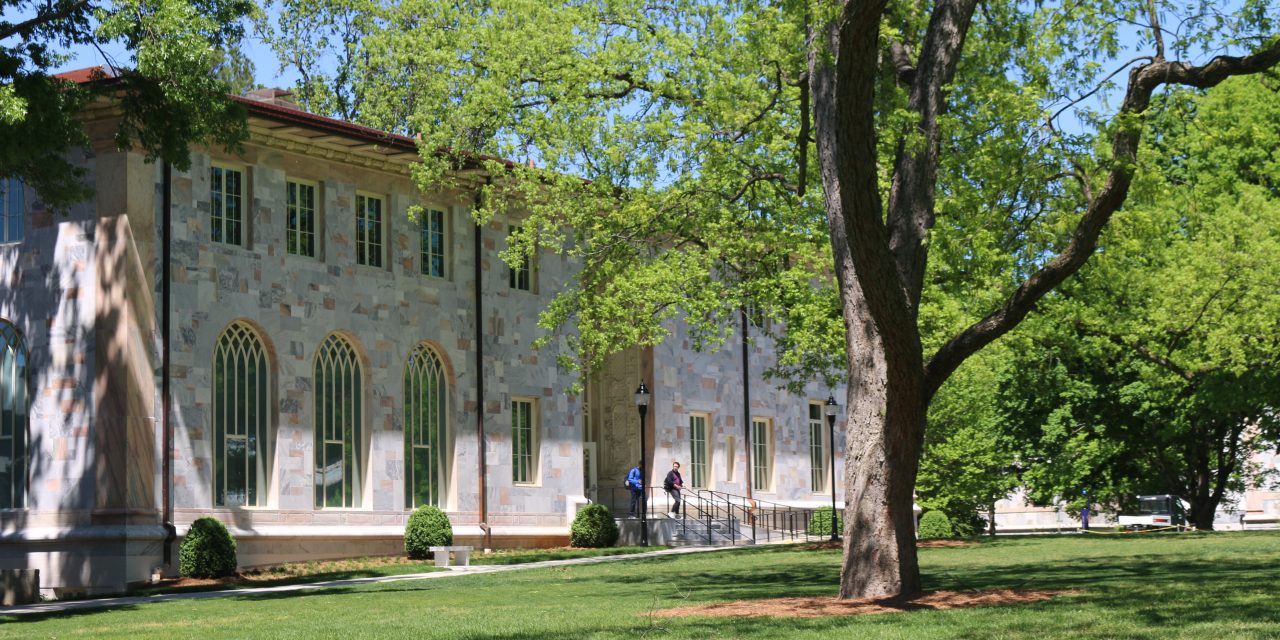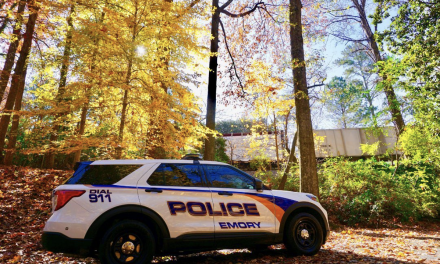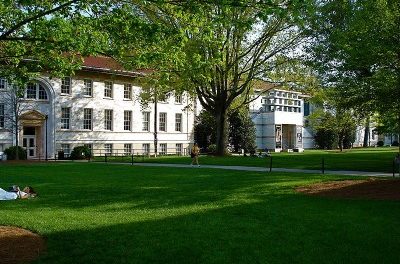University to phase out unnecessary plastic use by 2026
By Matthew Chupack and Sarah Davis
Emory University President Gregory L. Fenves signed the “Break Free from Plastic” pledge on June 15, ushering in a University-wide goal of phasing out unnecessary plastic use by 2026. It includes single-use plastic items like plastic utensils, plastic bags and non-reusable plastic water bottles.
The change followed over 50 meetings between student leaders of the Plastic Free Emory Project and individuals at Emory since launching their mission to reduce plastic waste on campus.

The Break Free from Plastic pledge requires the University to reduce the presence of single-use plastics on its Atlanta and Oxford campuses by 2026. (Creative Commons)
“This pledge marks a step towards taking collective action for our future,” Plastic Free Emory Project co-founder Nithya Narayanaswamy (21Ox, 23C) said. “Emory University is a stakeholder in the social and environmental wellbeing of its students, community and the larger Atlanta area, and this pledge marks a moment of unity to fight environmental injustice, social inequity and so much more.”
School of Medicine offers formal apology to Dr. Marion Hood
By Sarah Davis
The Emory School of Medicine denied Dr. Marion G. Hood acceptance into the school in 1959 because he is Black. After the rejection letter was posted and spread on social media in 2018 and again in 2021, the University addressed the rejection in a June 17 event, where Hood received a formal apology delivered by Dean Vikas Sukhatme on behalf of the school.

Dr. Marion Hood received a plaque from President of the Student National Medical Association Sydney Williams in “recognition of his tenacity and resilience in the quest to be a physician.”
“I apologize for the letter you received in 1959, in which you were denied consideration for admission due to your race,” Sukhatme said. “We are deeply sorry this happened and regret that it took us more than 60 years to offer you our sincere apologies.”
By Matthew Chupack
Malinda Maynor Lowery, a member of the Lumbee Tribe, was named the second Cahoon Family Professor in American History, becoming the History Department’s only scholar teaching the history of Indigneous people in the U.S.
The hire accompanies the University’s effort to expand course offerings to include a more diverse selection of academic studies. This fall, Lowery will be teaching “Legal History of Native Peoples.”
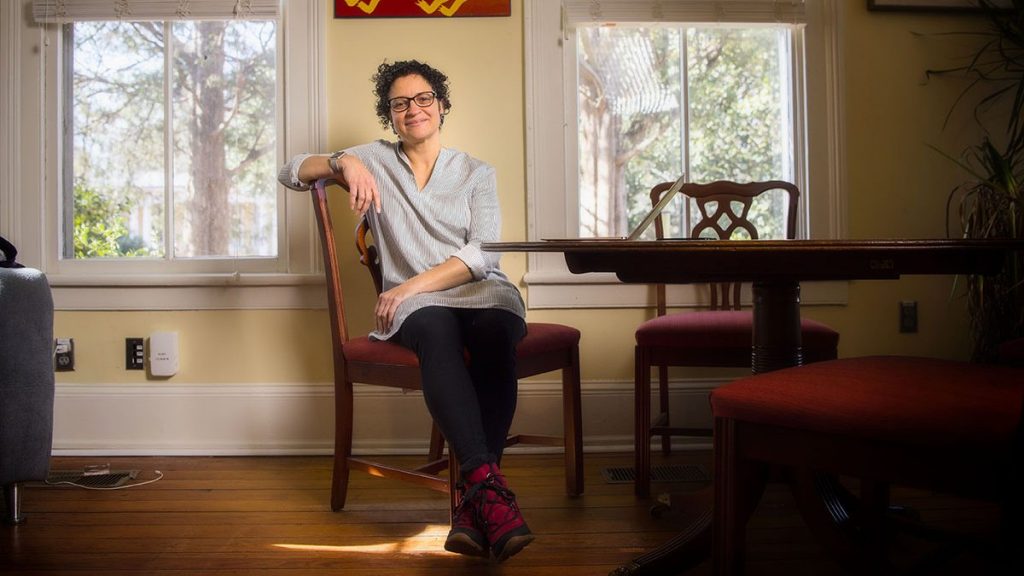
Malinda Maynor Lowery. Photo courtesy of the University of North Carolina at Chapel Hill
“I want to make sure that anybody who understands the way American society works can’t do that without thinking about Native people,” Lowery said. “Not only were we here first, but we’ve been here always. Many of the things that have been built here have been things that we originated, but our ownership of it has been denied.”
Goizueta Business School, LGBTQ Institute establish multi-year research partnership
By Matthew Chupack
The Goizueta Business School and the LGBTQ Institute at the National Center for Civil and Human Rights collaborated to research and address LGBTQ-related issues affecting residents of 14 southern states. The first two years of the partnership will focus on a survey that was launched June 30 that will provide greater insights into LGBTQ individuals’ experiences with issues such as health care, education and employment.

The Goizueta Business School (left) and the LGBTQ Institute at the National Center for Civil and Human Rights. Photos courtesy of Emory University and the LGBTQ Institute
“This is an important step in becoming more involved and engaged with the LGBTQ population,” Giacomo Negro, Professor of Organization and Management at Goizueta Business School said. “I see a broader value of knowing more about LGBTQ people in the South, and that’s something that is a little bit hard to do just based on census level data. The census does record basic information about cohabitating couples … but that’s pretty much all we know.”
Emory to rename Longstreet-Means Hall, build memorials honoring enslaved laborers
By Matthew Chupack and Anjali Huynh
Longstreet-Means Residence Hall was renamed Eagle Hall following the University Committee on Naming Honors’ in-depth review of various campus building namesakes and calls from students over the years to acknowledge the namesakes’ racist histories. Former University President Augustus Baldwin Longstreet was a slave owner and slavery apologist.
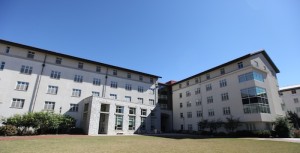
Eagle Hall. Photo by Jason Oh
The committee found that Longstreet “used his platform as Emory’s president to promote pro-slavery views,” Fenves wrote, making it “inappropriate for his name to continue to be memorialized in a place of honor.”
Oxford College’s Language Hall will be renamed to honor Horace J. Johnson Junior, a former judge on the Alcovy Circuit of Georgia.
The University will also construct memorials on both the Atlanta and Oxford campus to commemorate the enslaved people who helped build the University. The Twin Memorials Working Group is currently drafting and disseminating proposal requests to architectural firms.
By Matthew Chupack
Senior Lecturer in Sociology Tracy Scott’s family, whose father is Apollo 15 Commander David Scott, donated artifacts from his missions and time at NASA to Emory University’s Stuart A. Rose Manuscript, Archive, and Rare Book Library. These resources are showcased in a physical Apollo 15 exhibit on the third floor of the Robert W. Woodruff Library and on the Apollo 15 Learning Hub, which the Emory Center for Digital Scholarship created. The exhibit opened on July 26 and will likely be in the library through the spring semester.

David Scott standing on the moon. Photo courtesy of NASA
“One of the reasons for the hub is to focus more on the kind of context and not just on the science,” Tracy Scott said. “There are tons of websites that give you the technical details and scientific details, but there are none that give you the social context. No one has really explored that in a holistic way.”
Emory to require vaccines for all faulty, staff
By Matthew Chupack and Ninad Kulkarni
The University expanded its COVID-19 vaccination mandate to all University faculty and staff, with possible exemptions granted to individuals with medical contradictions or strong personal objections. As of Tuesday, 13,586 (89.8%) faculty and staff members are fully vaccinated, the Emory University COVID-19 Dashboard reports.
Professor of History Clifton Crais, who organized a petition that amassed 174 signatures as of July 22, calling on the University to require vaccines for all faculty and staff, noted that he was not consulted about the decision and only informed about the updated policy about two minutes before it was released.

Photo courtesy of Creative Commons/ SELF Magazine
“The July 27 announcement … is welcome news, even if it comes weeks, and in some cases months, after other institutions have mandated vaccines for all employees in addition to students,” Crais wrote in an email to the Wheel. “Clearly, time is of the essence and we all have a lot of work to do to ensure everyone is vaccinated.”
Emory EMS to return under new leadership
By Grace Lee
Emory Emergency Medical Service (EEMS) will resume in the fall, now chartered under the Office of Critical Event Preparedness and Response (CEPAR) instead of under the Emory Police Department (EPD). The program’s continuation followed former EPD Chief Rus Drew’s cancellation of the program in April.

The Emory Emergency Medical Services (EEMS) program, which was terminated by former EPD Chief Rus Drew last April, will return this fall under the Office of Critical Event Preparedness and Response (CEPAR) (Photo courtesy of CEPAR).
“It probably landed [under EPD] because they were looking for an operating unit that had experience responding in the community, and the police certainly had experience at that time,” Director of Operations and Senior Administrator for CEPAR Sam Shartar said. “When we re-envisioned how to make the program better, under CEPAR is a natural fit because we can provide the expertise that we have. It’s an opportunity for [EEMS] to start fresh.”
Biden nominates Emory Holocaust historian as antisemitism envoy
By Matthew Chupack
President Joe Biden nominated Dorot Professor of Modern Jewish History and Holocaust Studies Deborah Lipstadt as the U.S. State Department’s special envoy to monitor and combat antisemitism, an ambassador-rank position. The position entails executing projects that combat antisemitism on a global scale, ensuring that foreign public officials condemn antisemitic rhetoric and enhancing the security of at-risk Jewish populations.
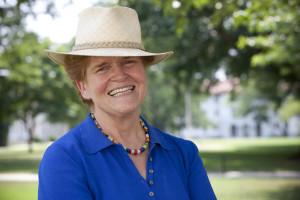
Professor Deborah Lipstadt
“She has the experience to lead at a time when antisemitism has been on the rise in the U.S. and around the world,” wrote in a statement about the nomination. “Dr. Lipstadt’s nomination is a sign that our country is committed to addressing acts of bigotry and hatred aimed at the Jewish people.”
Editor-in-Chief | Matthew Chupack (he/him, 24C) is from Northbrook, Illinois, majoring in sociology & religion and minoring in community building & social change on a pre-law track. Outside of the Wheel, Chupack serves on the Emory College Honor Council, is vice president of Behind the Glass: Immigration Reflections, Treasurer of Omicron Delta Kappa leadership honor society and an RA in Dobbs Hall. In his free time, he enjoys trying new restaurants around Atlanta, catching up on pop culture news and listening to country music.

